Dow Translation-js Encryption Cracking
This is a locally crawled website: http://fanyi.youdao.com/
I. Analysis Request
We input the fruit in the page: the English after translation is fruit. There are many parameters in the request. First, save the parameter data and make a record.
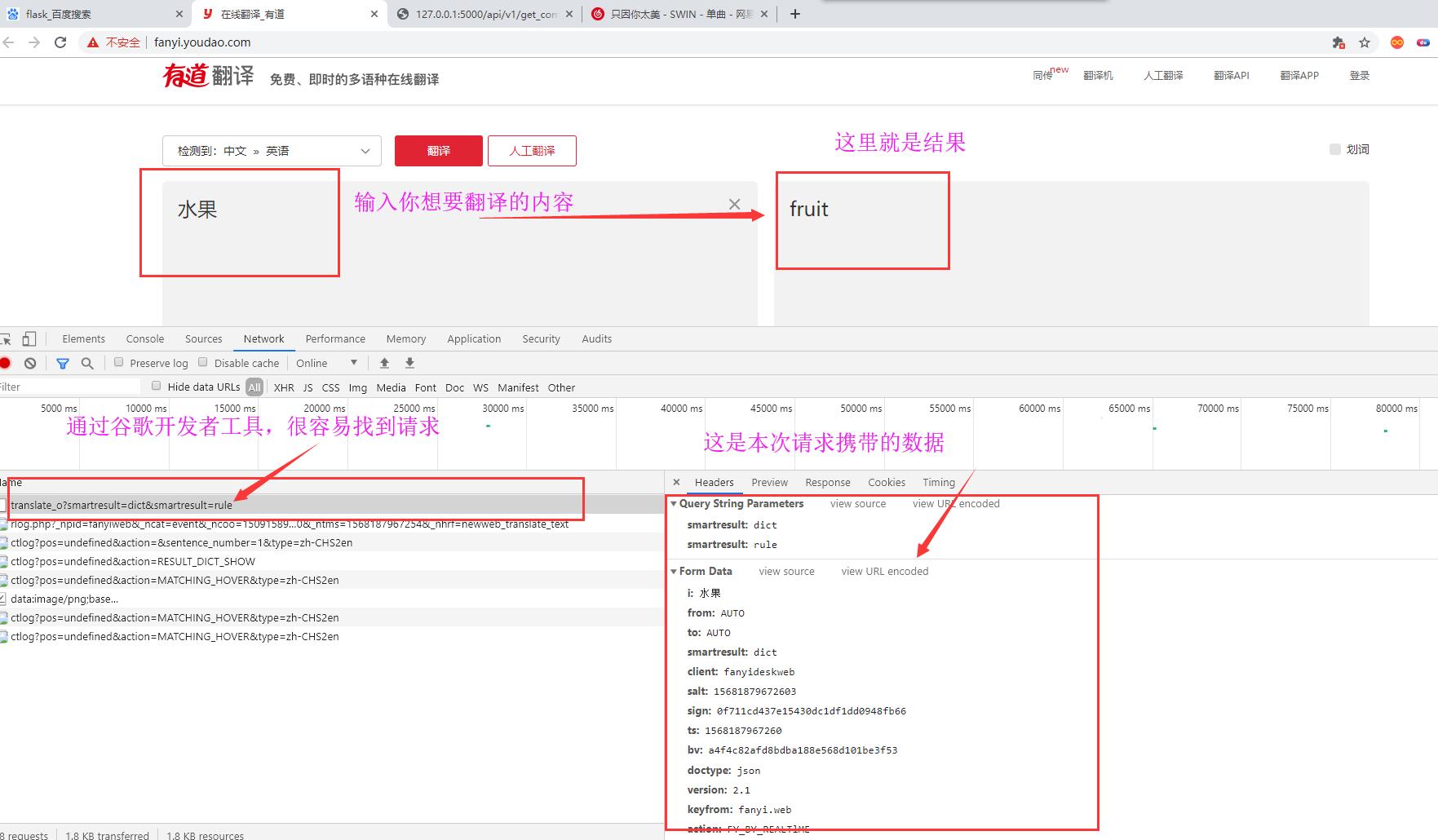
Let's enter a new word: watermelon.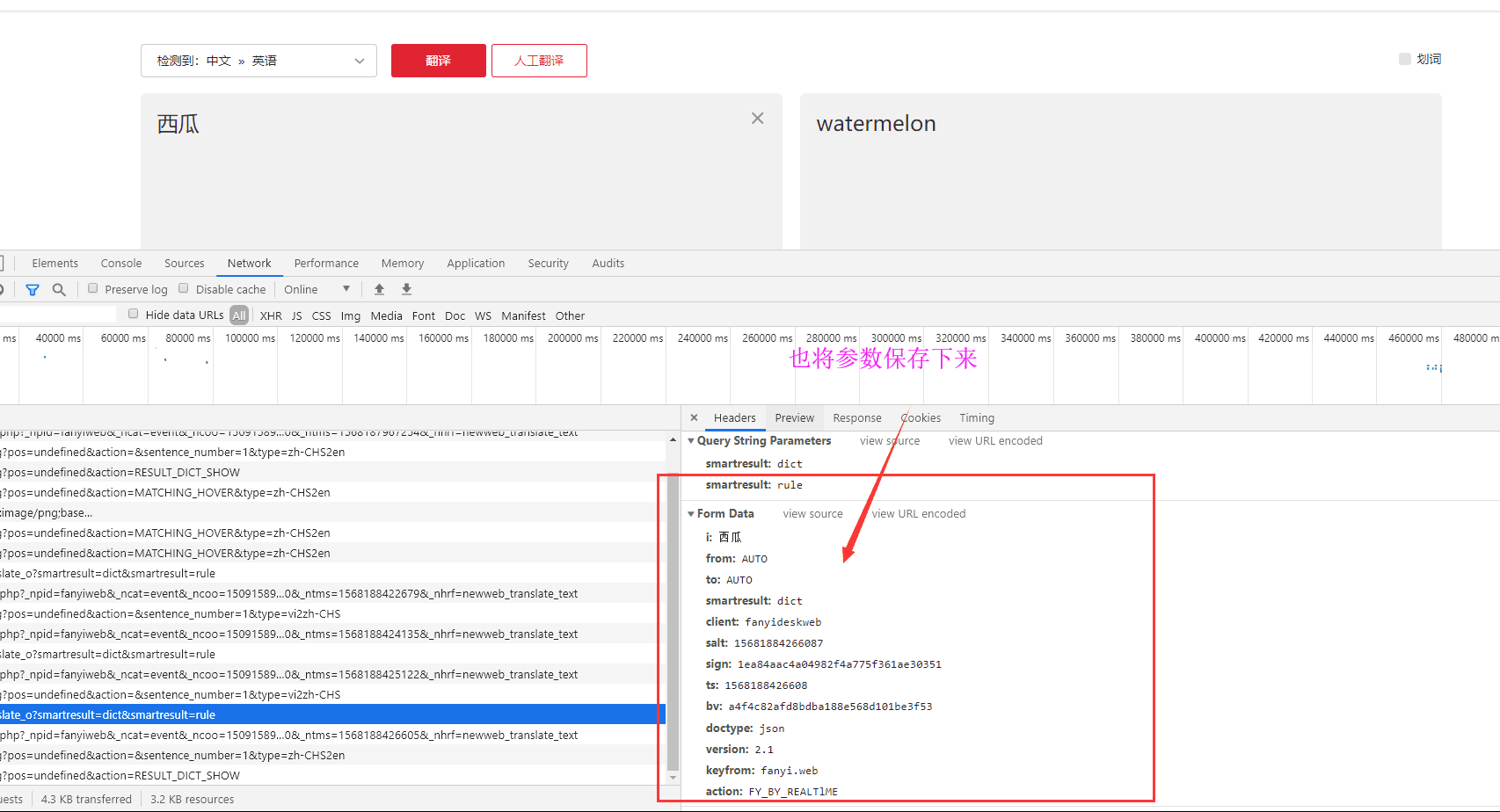
i: watermelon from: AUTO to: AUTO smartresult: dict client: fanyideskweb salt: 15681884266087 sign: 1ea84aac4a04982f4a775f361ae30351 ts: 1568188426608 bv: a4f4c82afd8bdba188e568d101be3f53 doctype: json version: 2.1 keyfrom: fanyi.web action: FY_BY_REALTlME i: Fruits from: AUTO to: AUTO smartresult: dict client: fanyideskweb salt: 15681879672603 sign: 0f711cd437e15430dc1df1dd0948fb66 ts: 1568187967260 bv: a4f4c82afd8bdba188e568d101be3f53 doctype: json version: 2.1 keyfrom: fanyi.web action: FY_BY_REALTlME
By contrast, the two requests carry different data parameters: it's easy to see that the four parameters i,salt,ts,sign are different. I: That's the word you need to translate. If ts, you can guess it's a timestamp. Salt is just a number added after TS parameter, right? Now, we don't know what the parameters of sign are. It's 32-bit data, and it's supposed to be md5 encrypted string, if not unexpectedly.
2. Decrypting Encryption Parameters
Just as sign doesn't know how to generate it, it's better to search with sign as the keyword. Look where it appears.
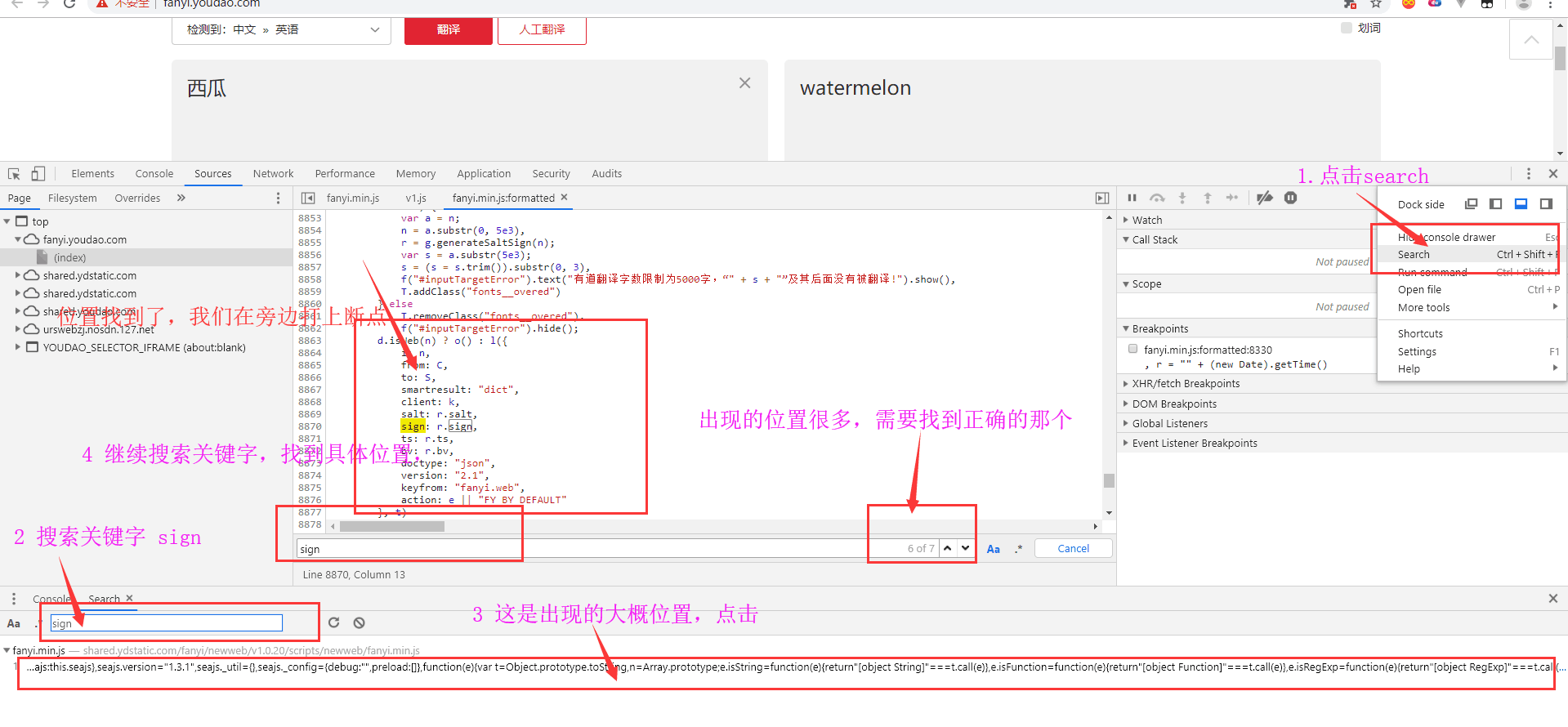
After interrupting, we are translating in another word: banana.
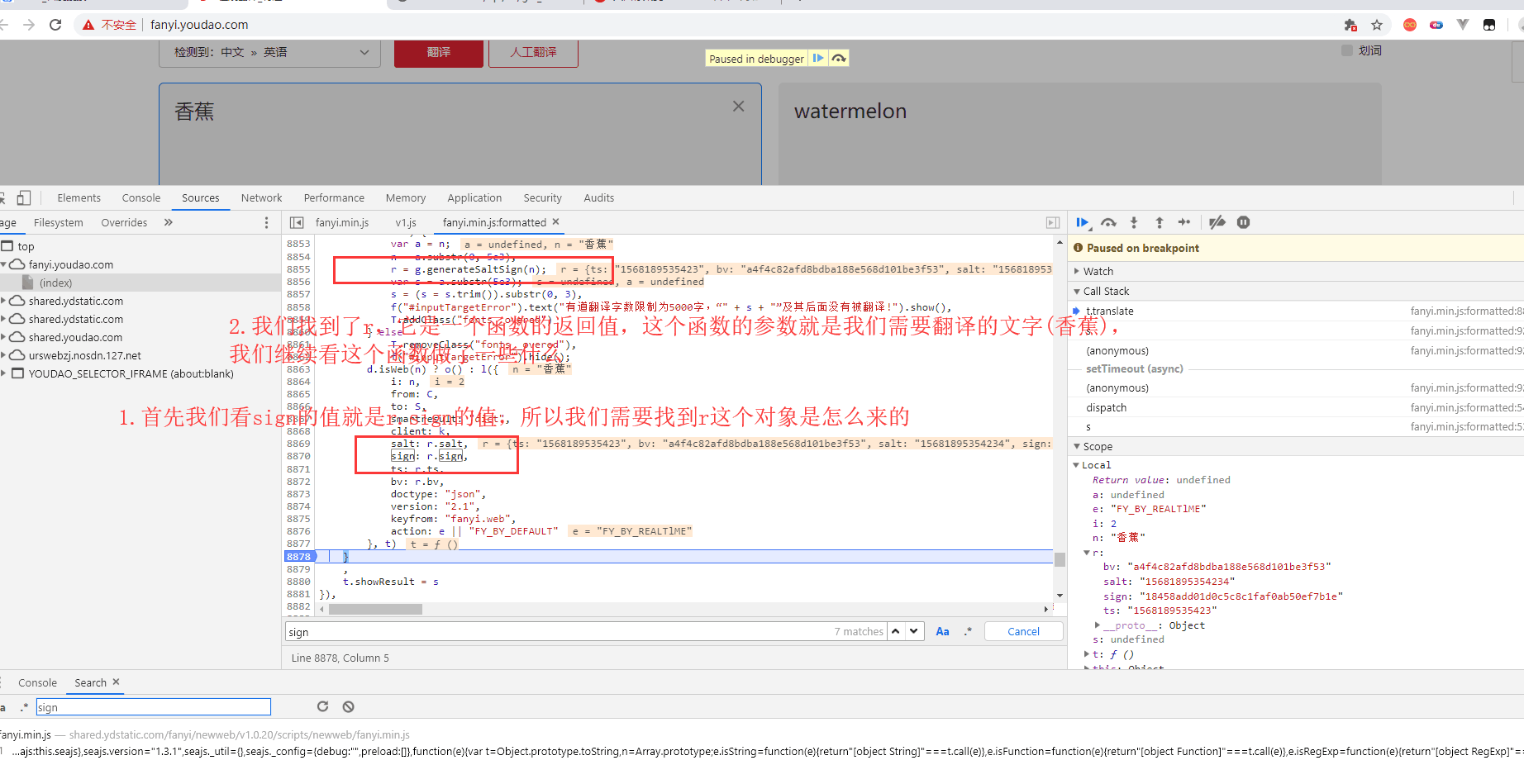
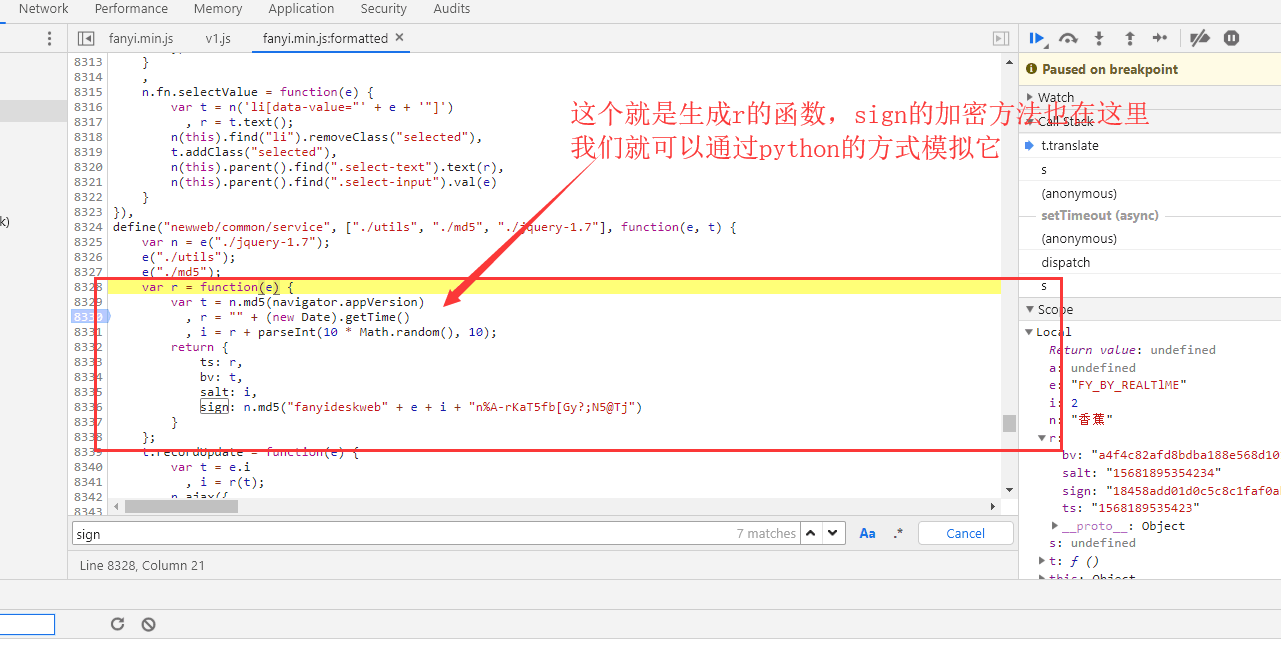
I won't explain the encryption function. navigator.appVersion is the user-agent of the browser.
def get_encrypt_data(keyword):
t = "5.0 (Windows NT 10.0; WOW64) AppleWebKit/537.36 (KHTML, like Gecko) Chrome/72.0.3626.121 Safari/537.36"
bv = hashlib.md5(bytes(t, encoding="utf-8")).hexdigest()
ts = str(int(round(time.time(), 3) * 1000))
salt = ts + str(random.randint(1, 10))
sign = hashlib.md5(
bytes("fanyideskweb" + keyword + salt + "n%A-rKaT5fb[Gy?;N5@Tj", encoding="utf-8")).hexdigest()
return ts, bv, salt, signSuccessful response: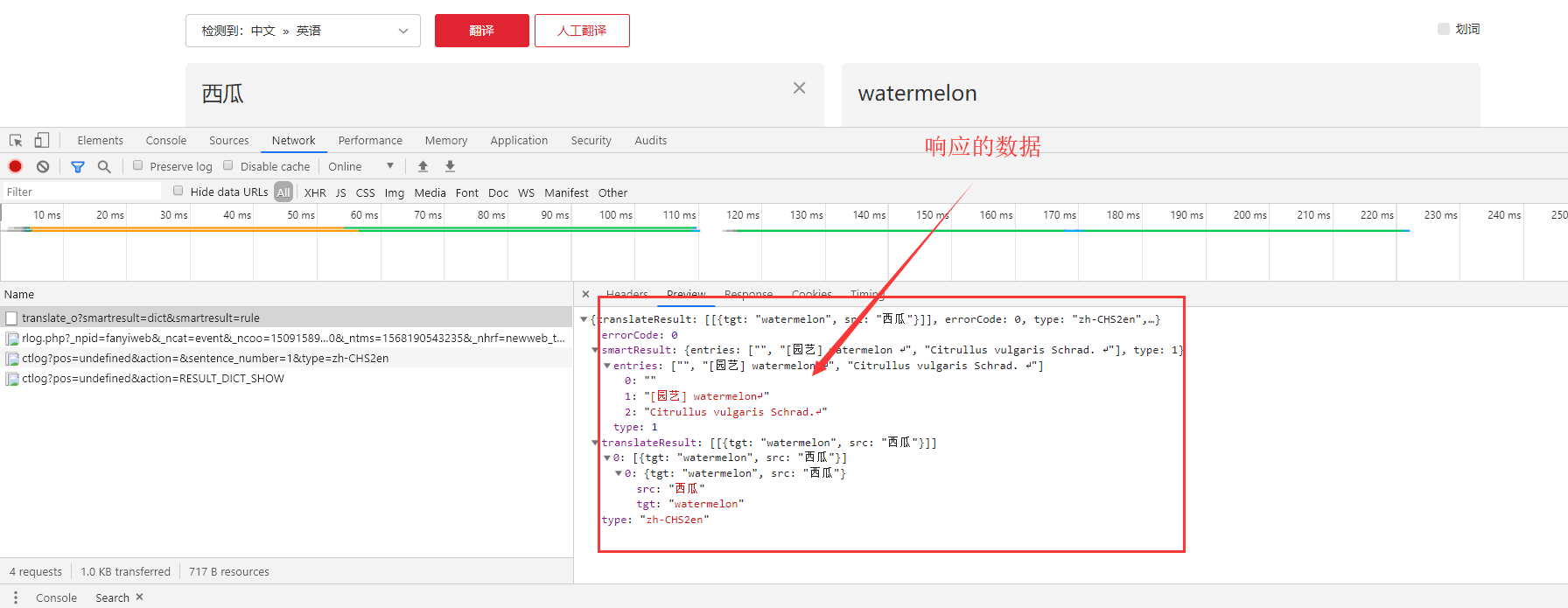
import requests, time, random, hashlib
from fake_useragent import UserAgent
ua = UserAgent()
url = "http://fanyi.youdao.com/translate_o"
headers = {
"User-Agent": ua.random,
"Referer": "http://fanyi.youdao.com/",
}
s = requests.Session()
def get_encrypt_data(keyword):
t = "5.0 (Windows NT 10.0; WOW64) AppleWebKit/537.36 (KHTML, like Gecko) Chrome/72.0.3626.121 Safari/537.36"
bv = hashlib.md5(bytes(t, encoding="utf-8")).hexdigest()
ts = str(int(round(time.time(), 3) * 1000))
salt = ts + str(random.randint(1, 10))
sign = hashlib.md5(
bytes("fanyideskweb" + keyword + salt + "n%A-rKaT5fb[Gy?;N5@Tj", encoding="utf-8")).hexdigest()
return ts, bv, salt, sign
def param():
dic = {}
dic["i"] = keyword,
dic["from"] = "AUTO",
dic["to"] = "AUTO",
dic["smartresult"] = "dict",
dic["client"] = "fanyideskweb",
dic["doctype"] = "json",
dic["version"] = "2.1",
dic["keyfrom"] = "fanyi.web",
dic["action"] = "FY_BY_REALTlME",
dic["ts"], dic["bv"], dic["salt"], dic["sign"] = get_encrypt_data(keyword)
return dic
if __name__ == '__main__':
re = s.get("http://fanyi.youdao.com/", headers=headers)
keyword = input("Enter the content you want to translate>>>:").strip()
response = s.post(url=url, data=param(), headers=headers)
msg = response.json().get("translateResult")[0][0]
print('''Translation content>>>:{}
//Translation results >: {}''. format (msg. get ("src"), msg. get ("tgt"))